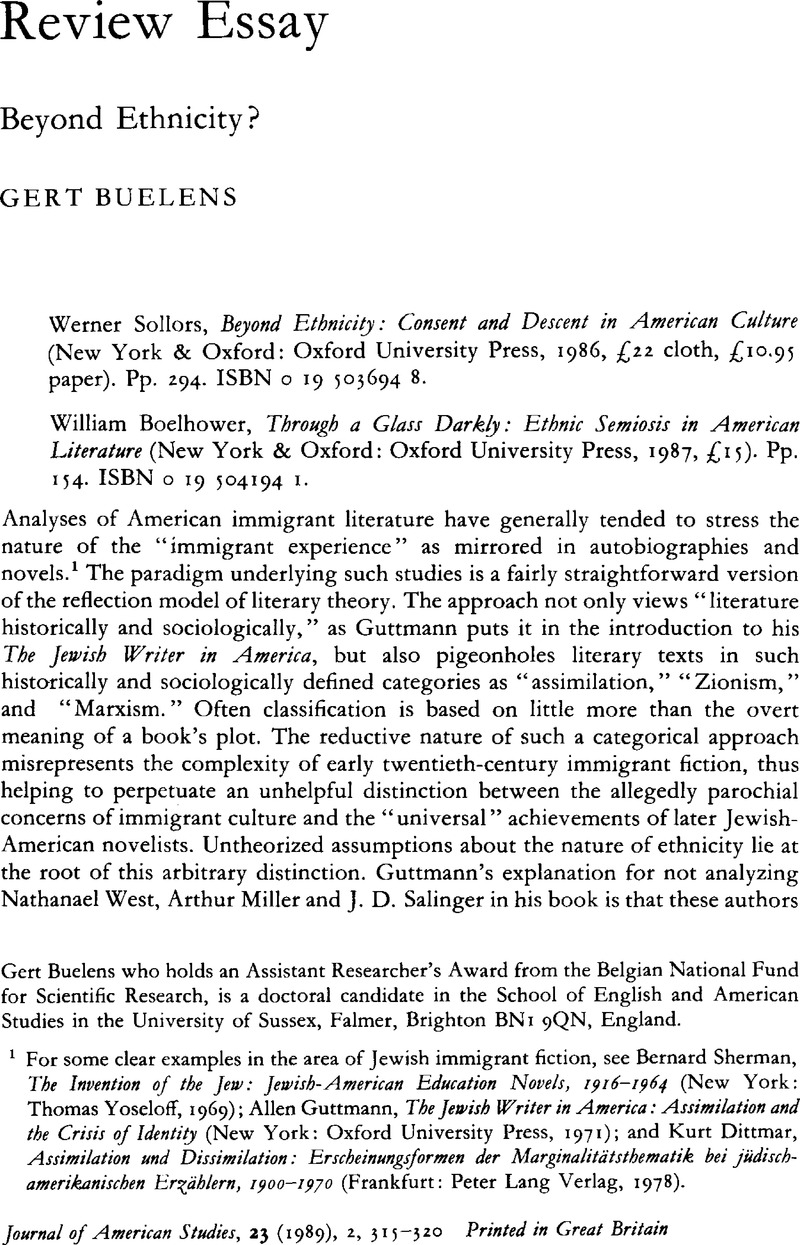No CrossRef data available.
Article contents
Beyond Ethnicity?
Published online by Cambridge University Press: 16 January 2009
Abstract

- Type
- Review Essays
- Information
- Copyright
- Copyright © Cambridge University Press 1989
References
1 For some clear examples in the area of Jewish immigrant fiction, see Sherman, Bernard, The Invention of the Jew: Jewish-American Education Novels, 1916–1964 (New York: Thomas Yoseloff, 1969)Google Scholar; Guttmann, Allen, The Jewish Writer in America: Assimilation and the Crisis of Identity (New York: Oxford University Press, 1971)Google Scholar; and Dittmar, Kurt, Assimilation und Dissimilation: Erscheinungsformen der Marginalitätsthematik bei jüdischamerikanischen Erzählern, 1900–1970 (Frankfurt: Peter Lang Verlag, 1978).Google Scholar
2 Reviewing the book for American Literature (59, 649–51)Google Scholar, Arnold Krupat, whose own study of Native American autobiography was commended in the pages of the Journal of American Studies for its grounding in recent critical theory, confessed that although, “[m]uch about this book suggests it is indeed the work of a serious and potent thinker,” he had “not been able to penetrate his thought.”
3 Klein, Marcus, Foreigners: The Making of American Literature, 1900–1940 (Chicago & London: University of Chicago Press, 1981).Google Scholar
4 Homberger, Eric, American Writers and Radical Politics, 1900–1939: Equivocal Commitments (London: Macmillan, 1986).CrossRefGoogle Scholar
5 See, for example, Posnock, Ross, “Henry James, Veblen and Adorno: the Crisis of the Modern Self,” Journal of American Studies 21 (1987), 31–54.CrossRefGoogle Scholar
6 Dan Sperber and Wilson, Deirdre, Relevance: Communication and Cognition (Oxford: Basil Blackwell, 1986).Google Scholar A recent review of the book by Alastair Fowler (London Review of Books, 30 03 1989, 16–17Google Scholar) explores its significance for literary study.


